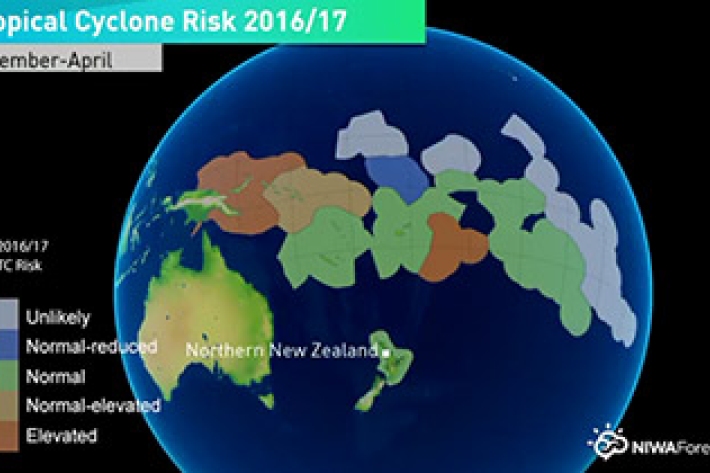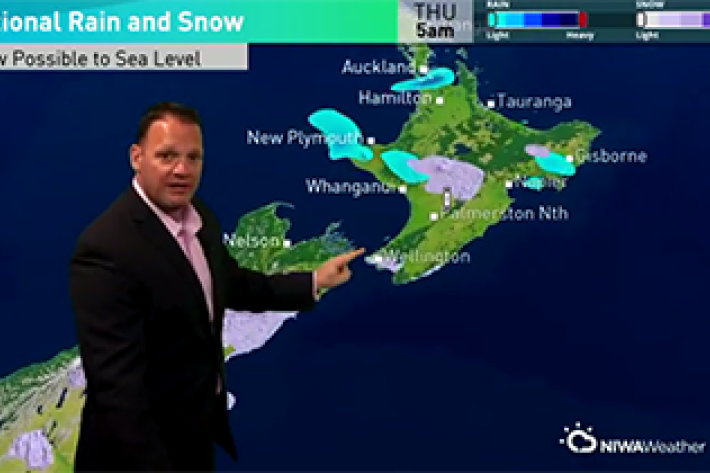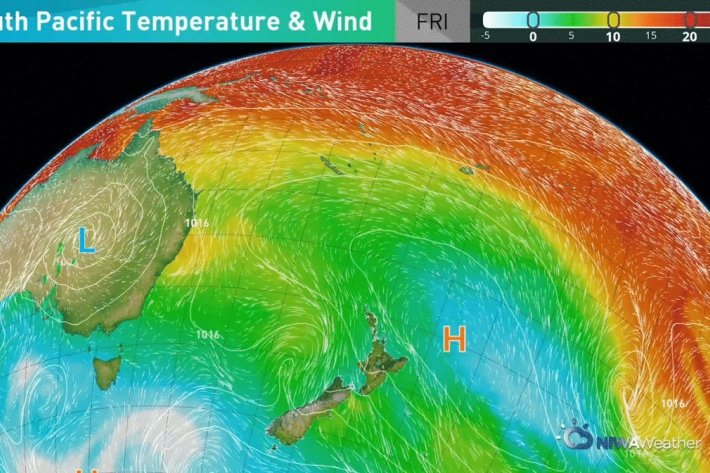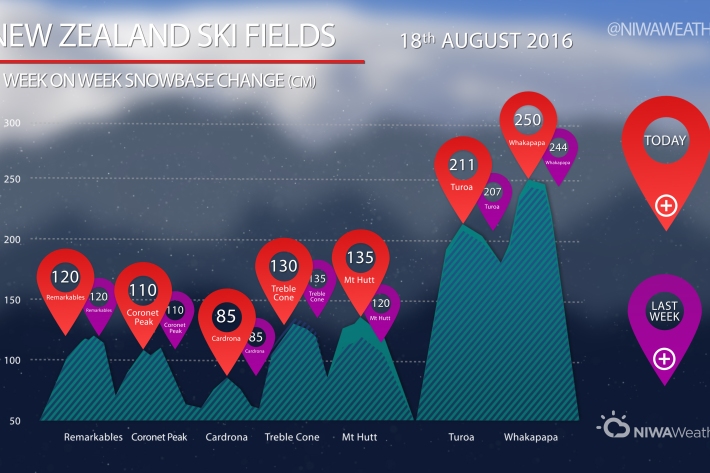-

NIWA's Hotspot Watch
Hotspot28 October 2016A weekly update describing soil moisture across the country to help assess whether severely to extremely dry conditions are occurring or imminent. -

NIWA's Hotspot Watch
Hotspot20 October 2016An update for 20 October describing soil moisture across the country to help assess whether severely to extremely dry conditions are occurring or imminent. -

Southwest Pacific Tropical Cyclone Outlook
Media release14 October 2016Moderate La Niña or neutral tropical conditions expected to produce near average activity across most islands. -

Winter is coming – again
Media release06 September 2016NIWA forecasters believe that winter will return with a vengeance from tomorrow. -

NIWA Seasonal Climate Outlook: September - November 2016
NIWA Forecaster Ben Noll hosts a broad-brush regional outlook for New Zealand's temperature and rainfall over the next three months. -

Ready, set, go – it’s time for a warm leap into spring
Media release30 August 2016It’s time to close the door on winter – spring will be here on Thursday bearing gifts of warm winds and sunshine for September. -

Snow trends 18th August
Media release18 August 2016After one of the most tranquil weeks of the season, winter returns to the South Island this weekend, delivering some fresh powder—music to the ears of the country’s snow hounds. -

Heavy snow forecast sends NIWA staff outdoors
News article03 August 2016NIWA scientists and field teams will be heading outdoors for the first snow mobilisation of winter later this week to make the most of what is expected to be the largest and longest wintry blast of the year. -

Seasonal Climate Outlook Aug-Oct 2016
NIWA Forecaster Chris Brandolino explains what New Zealand can expect in the way of rainfall and temperature over the next three months. -

Post-conference field trip #1 - Kauri and the Quaternary of Northland
Details about the post-conference field trip that made a loop around Northland -

Tropical winds yield late-July record warmth
Media release25 July 2016A number of temperature records toppled across New Zealand over the weekend as tropical winds from New Caledonia and Vanuatu streamed over the country. -

Atmospheric river of moisture headed for New Zealand
News article06 July 2016A series of low pressure systems will trek across the Tasman from tonight into the weekend, resulting in locally heavy rain and the potential for flooding and slips for the east of the North Island.

